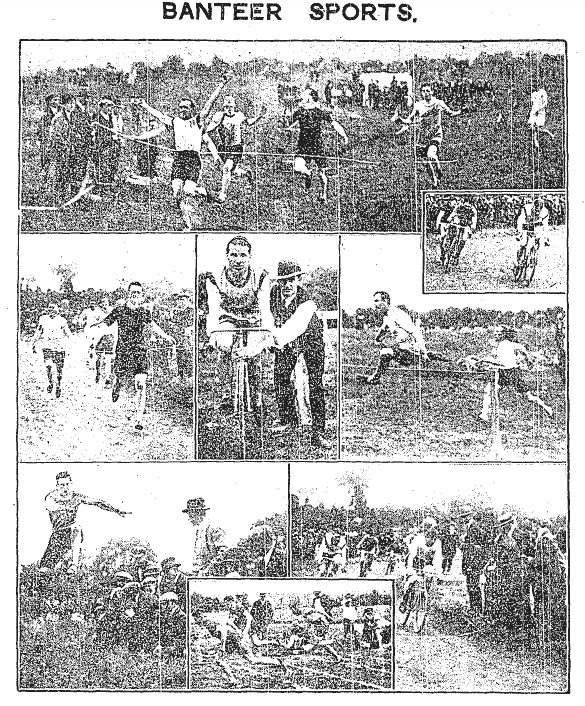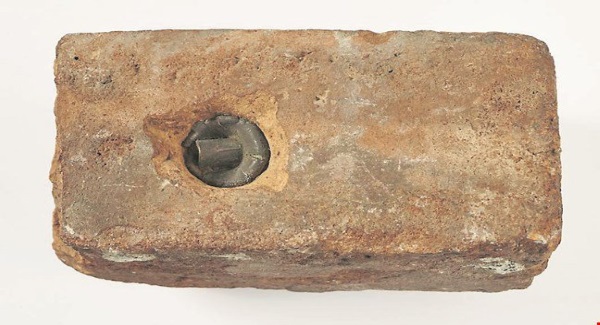In This Section
- Home
- Collections
- Atlas Resources for Schools
- Cork Fatality Register
- Mapping the Irish Revolution
- Mapping IRA Companies, July 1921-July 1922
- Mapping the Burning of Cork, 11-12 December 1920
- Martial Law, December 1920
- The IRA at War
- The Railway Workers’ Munitions Strike of 1920
- The Victory of Sinn Féin: The 1920 Local Elections
- The War of Words: Propaganda and Moral Force
- The IRA Offensive against the RIC, 1920
- De Valera’s American Tour, 1919-1920
- The British Reprisal Strategy and its Impact
- Cumann na mBan and the War of Independence
- The War Escalates, November 1920
- The War of Independence in Cork and Kerry
- The Story of 1916
- A 1916 Diary
- January 9-15 1916
- January 10-16, 1916
- January 17-23, 1916
- January 24-30, 1916
- February 1-6 1916
- February 7-14, 1916
- February 15-21, 1916
- February 22-27, 1916
- February 28-March 3, 1916
- March 6-13,1916
- March 14-20, 1916
- March 21-27 1916
- April 3-9, 1916
- April 10-16, 1916
- April 17-21,1916
- May 22-28 1916
- May 29-June 4 1916
- June 12-18 1916
- June 19-25 1916
- June 26-July 2 1916
- July 3-9 1916
- July 11-16 1916
- July 17-22 1916
- July 24-30 1916
- July 31- August 7,1916
- August 7-13 1916
- August 15-21 1916
- August 22-29 1916
- August 29-September 5 1916
- September 5-11, 1916
- September 12-18, 1916
- September 19-25, 1916
- September 26-October 2, 1916
- October 3-9, 1916
- October 10-16, 1916
- October 17-23, 1916
- October 24-31, 1916
- November 1-16, 1916
- November 7-13, 1916
- November 14-20, 1916
- November 21-27-1916
- November 28-December 4, 1916
- December 5-11, 1916
- December 12-19, 1916
- December 19-25, 1916
- December 26-January 3, 1916
- Cork's Historic Newspapers
- Feature Articles
- News and Events
- UCC's Civil War Centenary Programme
- Irish Civil War National Conference 15-18 June 2022
- Irish Civil War Fatalities Project
- Research Findings
- Explore the Fatalities Map
- Civil War Fatalities in Dublin
- Civil War Fatalities in Limerick
- Civil War Fatalities in Kerry
- Civil War Fatalities in Clare
- Civil War Fatalities in Cork
- Civil War Fatalities in the Northern Ireland
- Civil War Fatalities in Sligo
- Civil War Fatalities in Donegal
- Civil War Fatalities in Wexford
- Civil War Fatalities in Mayo
- Civil War Fatalities in Tipperary
- Military Archives National Army Fatalities Roll, 1922 – 1923
- Fatalities Index
- About the Project (home)
- The Irish Revolution (Main site)
Each week, we look back at what was “in the news” the same week 100 years ago – as reported in the Cork Examiner in 1916.
By Nicola Stathers
Tuesday, August 15, 1916

Banteer Sports were held on Sunday, and were enjoyed by the large number of spectators present. They included: springing, hurdles, long jump, and the Five Miles Cycle Championship of Munster.
Wednesday, August 16, 1916
- Iveragh Feis
The Iveragh Feis was held in Cahirciveen on Sunday. Thought the morning was gloomy and threatening to rain, large numbers of persons arrived in Cahirciveen in the early part of the day from all parts of Iveragh and surrounding districts. With the exception of unsatisfactory weather conditions the fixture was otherwise a great success.
Results were declared in the following: Reading Irish, Story-telling, Month’s Diary in IrishDramatic Recitation, Recitation of Poetry, Irish CatechismSinging, Irish Dancing, Flute-playing
Thursday, August 17, 1916
- Alcohol and War Savings
The National War Savings Committee called attention to the fact that the sum now being spent by the nation on alcoholic liquors is estimated at £182,000,000 a year, and appeal earnestly for an immediate and substantial reduction of this expenditure in view of the urgent and increasing need for economy in all departments of the nation’s life.
The committee says it is entirely outside the province of a committee appointed to deal with war savings to make any pronouncement on the social and political questions involved in the limitation and control of the sale of alcoholic liquors. But obviously in the present national emergency a daily expenditure of practically £500,000 on spirits, wine and beer cannot be justified on the ground of necessity. This expenditure, therefore, like every other form and degree of expenditure beyond what is required to maintain healthy and efficiency is directly injurious to national interests. Much of the money spent on alcohol could be saved. Even more important would be (1) the saving for more useful purposes of large quantities of barley, rice, maize and sugar, and (2) the setting free of much labour urgently need to meet the requirements of the navy and the army. To do without comforts and luxuries and all else that is not essential to health and efficiency while the war last is the truest patriotism.
Friday, August 18, 1916
The Press Association is officially informed that the King has been pleased to approve the appointment of the following gentlemen to be members of the Royal Commission to enquire into the cases of Messrs. Skeffington, Dickson, and McIntyre…

Saturday, August 19, 1916
- A word to croakers
Like him or like him not, Mr. Lloyd George is one of the few men who have come through the two years of war with any reputation left. The one serious blot on his escutcheon is the breakdown of the Irish settlement. How a man of his grit and force of character would allow himself even to appear to be baulked by a party hack of the calibre of Lord Landsdowne is to our mind the least plumbable political mystery of our generation. Mr. Asquith might be relied upon to turn the other cheek to all and sundry. But neither friend nor foe of the Welshman would expect anything but a blow for blow and a tooth for tooth…
What we wanted to say is that Mr. Lloyd George’s address to the Eisteddfod strikes us as in some ways one of the most important pronouncements of the day. Briefly, it was a plea for national cheerfulness, a rebuke to the downhearted brigade, of which England, to whom the words were addressed, has not a monopoly. Mr. George delivered a reasoned rebuke of those who want to put an end to everything cheerful in England: “To encourage idle persons to compose poetry during war was unpatriotic! Promoting culture during war-time was something every Welsh member of Parliament ought to snub! To give prizes for social and industrial events of the Welsh village was dangerous at anytime, and during war was doubly so! To excite the interest of people in literature during war was a criminal waste of public money! Above all, to sing during war, especially national songs, was positively indecent, and the powers of the Defence of the Realm Act ought to be invoked to suppress it.” This may be adapted with advantage for Irish purposes. There are kill joys who would have no Gaelic matches, who would have no Feis, who would not go to a theatre or music hall during the war. Doubly undesirable is the cry that during this trying period there should be no attention to Irish culture or national ideals, native poetry or music. All these things have a value above price. The war will have caused pain and suffering and loss enough. Let us not add to the sacrifice other precious things which once lost can never be regained.
That was why Mr. George favoured the holding of the festival of literature and song even in the middle of Armageddon…
It was only a Celt could make such a speech, but the world is the better that it was made. To our own country, curiously sympathetic with Welsh feeling, may be given with equal fervour the same advice to keep cheerful. Whether sections of the Irish people are concerned about the war or our own more domestic troubles, nothing is to be gained by the cult of the lugubrious. The war will be over some day…The country with the strongest nerves, which meets disaster without snivelling, or calling their leaders ninnies or traitors, is the victor. To be down-hearted is to be defeated…
With the aid of our splendid pastimes, our grand music, our ancient language, and our glorious traditions, surely we will not be behind our Welsh cousins in facing the music with resolute and cheerful hearts.
- Singing “Easter Week”
When two young men named Daniel O’Brien and Michael Ryan, The Spital, were charged at Tipperary with disorderly conduct, Constable Cammins said he found them and a number of other youths singing “Who Fears to Speak of Easter Week” and shouting “Up the Rebels,” and “Good Old Mick Callaghan.” When he advised them to go home they refused. Defendants were fined 1s each and cautioned.
Monday, August 20, 1916
- Ring Irish College
Attendance of students at the Summer College this year makes a record. The residential College which has accounted for over 100 students has been filled to its utmost capacity during August by a most earnest band of students.
A scheme for encouraging the speaking of Irish in the homes of the district was adopted. It was mentioned that the children of the district were fluent Irish speakers and should be encouraged by prizes to speak Irish Correctly. It was reported that the Intermediate programme was taught free of charge to a number of children of the district. Most of the teaching was done through the medium of Irish. The Christian Doctrine Programme was also taught through Irish.
